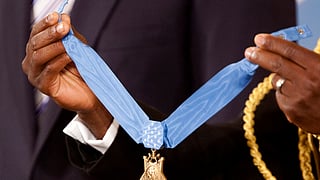Every four years, there occurs a very predictable event which ends up being the main topic of discussion for at least 2-3 weeks and then subsequently dies down.
No, we are not talking about leap years.
We are talking about India's incredible inability to win more than a handful of Olympic medals during the Summer Olympics.
India had won a total of 6 Olympic medals at the 2012 Summer Olympics in London, despite the fact that it has world's second largest population. Also out of the 79 countries that won Olympic medals, India came in 59th place.
Here is the most surprising part, we as Indians seem to always clamor to be on the same playing field as our BRIC counterparts: Brazil, Russia, and China. In fact we want to be on the same playing field as the rest of the world. But when it comes to sports, we don't stand anywhere near our BRIC counterparts and lag in comparison to most of the countries.
During the 2012 Olympic games, Russia ranked 4th with a total of 81 Olympic medals, Brazil ranked 22nd with a total of 17 Olympic medals, and China came in 2nd place with a total of 88 Olympic medals.
You might be wondering, what does a country winning Olympic medals have to do with its economy? If you dig deep enough, the truly astonishing facts appear.
Sports, culture and their economic impacts on a country
There is no debating that India is a cricket-crazy nation. It is a part of our culture and in many ways, is one of the few things that unifies the entire nation. From "gully cricket" to the official Indian cricket team, cricket is to India what football is to Brazil. But this has not stopped Brazil from winning Olympic medals.
Brazil, Russia, China, and dozens of other countries have been able to promote more than one sport in their respective countries. Why has the development of other sports been stunted in India, and what's its economic impact on India?
The irony is, if sports were promoted the same way we promote education, there is no doubt about the positive impact it would have on India's youth and, consequently, the economy as a whole. The potential is truly limitless.
In a comprehensive study done titled "Promoting the Benefits of Sport", a group of researchers found that encouraging sports from a young age has a tremendous impact on not only the individuals, but also on the country overall.
The study was broken down into four sections, which when put together paints a clear picture that promoting sports not only empowers children, adolescents, university students and adults, but also plays a tremendous role in boosting a country's economy.
Educational benefits of sports
Right from elementary (primary) education, all the way through university level, numerous studies have shown that there is a direct correlation between engaging students in sports and their development in education. The most important aspect doesn't come from a physical standpoint, but more from a self-esteem and self-awareness standpoint. Due to higher levels of self-esteem and confidence, children are less likely to miss school, are more likely to do their homework and earn better grades.
According to a study conducted by the United Nations in 2003, "Increasing the time spent on physical education in schools does not reduce marks in intellectual subjects but rather improves the ability of some students to learn and retain information."
Many students entering high school have a hard time managing to fit in sports into their schedule. However, taking part in sports can have a tremendous impact on their education.
It's shown that "extra-curricular sport participation throughout high school is a good predictor of having a job with a future and a job with autonomy at the age of 24." In other words, high school students who manage to play extra-curricular sports on a competition level are more likely to be employed by the age of 24.
A common problem occurs when students enter universities. Sports become a lower priority while education takes on a higher priority. However, it has been shown, "Students who participate in interscholastic sports are less likely to be regular and heavy smokers, drug users, and are more likely to stay in school and have good conduct and high academic achievement."
In other words, regular sports activity from a young age through university leads to improved education. However, this flies in the face of India's cultural "norms". We assume that sports can be a distraction after a child reaches a certain age, while studies clearly point to the opposite.
Health benefits of sports
Few would disagree that sports leads to better health. Physical activity, especially from a younger age leads all sorts of health benefits. However, one common problem faced in India is a lack of competitive sports leagues. For example, outside of cricket it is difficult for an average student to find a competitive league to play sports such as basketball and football, which require little money to play (as opposed to sports like tennis, golf, field hockey, etc.).
Finding basketball courts is in itself a challenging task in most cities, let alone vacant football fields. And so gully cricket becomes the de-facto sport of choice. This leads to sports being associated as a recreational hobby versus an intense, competitive activity.
In the same study referenced earlier, it was shown that athletes who competed in intense, competitive sports were more likely to develop critical thinking skills, develop fewer mental health problems, and have a more disciplined and regimented diet. If you think about this, it makes sense as playing intense sports brings about a disciplined mind that can be used across all walks of life.
Social benefits of sports
When one thinks of sports, the societal benefits it brings would probably not immediately come to mind. And yet, it has been shown again and again through studies that societies which encourage sports have lower crime rates, lead to empowerment of women, leads to a decrease in poverty, and brings families and communities together.
The reasons are quite simple when one thinks about it: most sports are team oriented. When a cricket team is formed, a bond is automatically made among teammates. The same applies to football, basketball, field hockey, etc.
As a result of children being involved in sports, crime rates drop and communities become safer. Women are empowered because, through sports, their self-esteem improves and confidence grows. India already faces some glaring inequalities between men and women across all segments of society; why can't we empower women through sports and lower that gap? Movies like Chak De India, featuring women's field hockey and Bhaag Milkha Bhaag, featuring the real life story of sprinter Milkha Singh, brought a sense of patriotism to millions across India; yet how many students do you know that competitively participate in these sports?
Economic benefits of sports
And last, but not least, we get to the economic benefits of sports on a country.
Here's an interesting statistic. We know that Australia has a competitive cricket team, just like us. And yet, Australians annually spend more than 7 billion British Pounds on sports consumption. That translates to approximately 70,000 crore annually. It is almost a surefire guarantee that India does not spend anywhere close to that amount in sports consumption.
The reason Australians spend so much on sports is not simply a function of their spending potential. India's population is 50 times the size of Australia's population. The reason is that Australia is heavy promoter of cultivating sports into its culture. Rugby, cricket, traditional football, Australian football, tennis, basketball- are all encouraged and intertwined into Australia's ecosystem. The result is that the public is willing to spend 70,000 crore annually on sports consumption.
In another study, it was shown that in the United Kingdom, the consumer expenditure relating to sport was10.4 British pounds, making sport activity a critical factor in raising its economy.
The bottom line is quite simple, when a society actively promotes sports into its culture, encouraging kids to not only play sports as a hobby or as a recreational activity but to actively, intensely compete- it benefits the society from not only an educational, health, and societal level- but actually benefits the country's economy as a whole.
After India's poor performance at the Sydney Olympics in 2000, a comprehensive study was done to determine why India did not perform well and what could be done in the future. When asked for reasons for India's dismal performance, the usual reasons came up, lack of government funding, lack of resources, etc. Yet when the study was completed, a shocking revelation unfolded. From the study itself:
"This study considered the factors behind the poor performance...a number of factors were investigated...governmental policies are likely to have only a limited effect on the actual number of medals won. In contrast, an increasing cultural focus on sport offers some potential for increasing Olympic performance."
A way forward
The above paragraph, in a nutshell describes our attitude perfectly when it comes to explaining how and why we fail to garner more Olympic medals. The default blame goes towards the government; but what if looked at the picture a little differently? Instead of playing gully cricket as a recreational activity, what if more kids were playing competitive football or competitive running? Competitive sports not only bring about more discipline, but benefit the country from an economic, societal, and educational standpoint.
And maybe by laying the foundation correctly, right now- instead of the usual chatter, people will be talking about India's remarkable turnaround 10 years from now at the 2024 Olympic Games.
Raghu Kumar is the co-founder of RKSV, a leading low-cost broking firm. The opinions expressed here are the personal opinions of the author. NDTV is not responsible for the accuracy, completeness, suitability or validity of any information given here. All information is provided on an as-is basis. The information, facts or opinions appearing on the blog do not reflect the views of NDTV and NDTV does not assume any responsibility or liability for the same.

 Sign Up with Google
Sign Up with Google




 RECOMMENDED FOR YOU
RECOMMENDED FOR YOU





